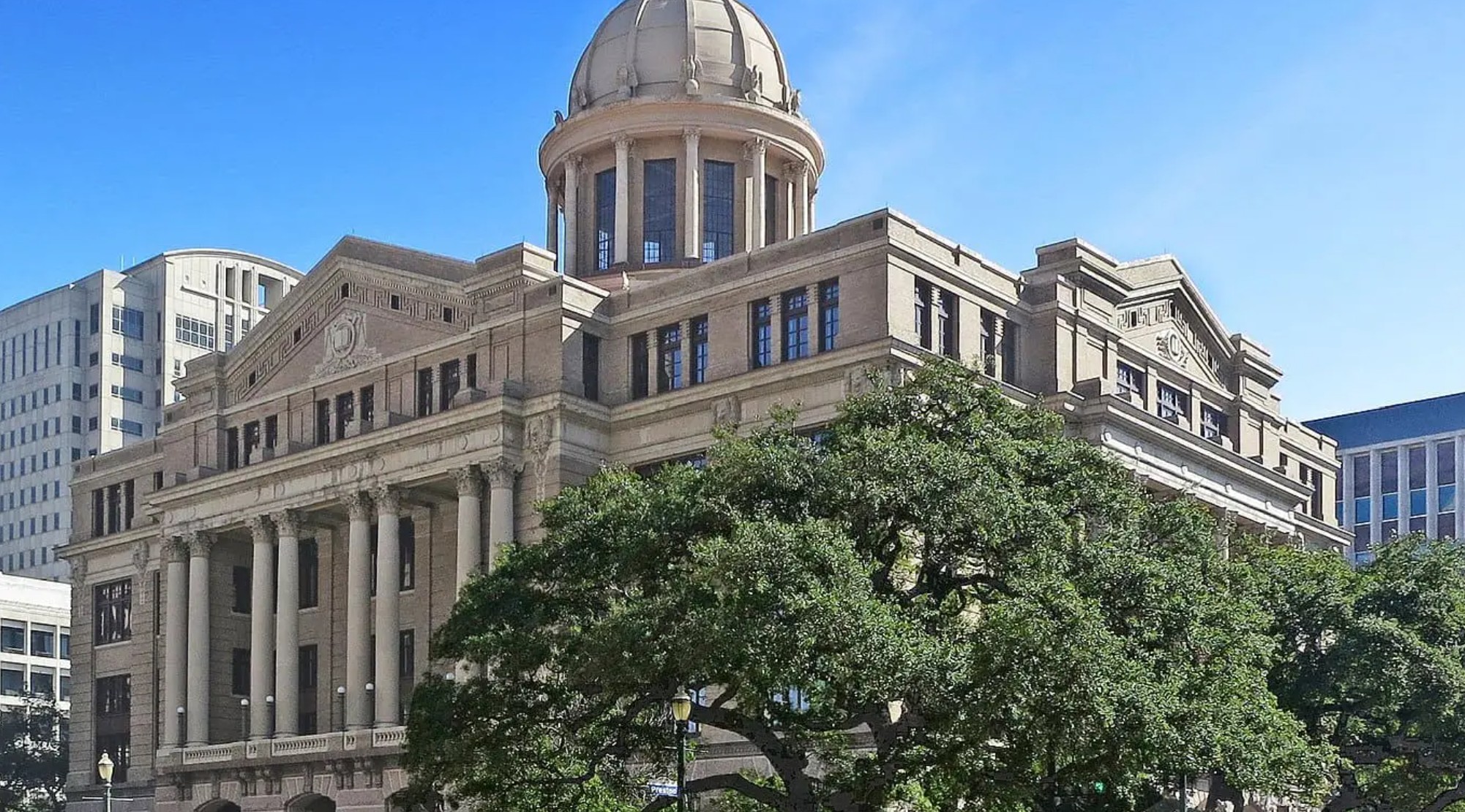Harris County’s ‘Climate Justice’ Plan Proposes Using NGOs To Work Around the Law

The plan recommends new pollution taxes and promotes DEI.
Harris County 1910 Courthouse - Author: i_am_jim
By Joseph Trimmer | April 14, 2025
2 min readListen to this article2 minListen to this article2 min
Harris County’s Democrat Commissioners voted last week to enact a “climate justice” plan. The plan proposes a new greenhouse gas tax, promotes DEI, and recommends income-based property taxes and rent controls—all of which are outside the power of the county and may even violate Texas law.
The plan posted on the Office of County Administrator’s website openly acknowledges conflicts with state law and directs officials to work around legal barriers by using non-profits to achieve its goals.
County officials will support NGOs that align with their intended goals regarding what they call “climate resilience” and “equity.” According to the plan, “For actions that are best carried out through partnerships, Harris County will support these collaborations.”
The plan also proposes a system for businesses to pay additional taxes to fund programs and projects as dictated by local communities supposedly impacted by pollution.
New income-based property tax assessments to levy different tax rates on citizens in the name of climate justice are suggested as part of a five-year action plan.
The plan also instructs officials to consider implementing rent controls, which some critics say could distort the real estate market and make developers less likely to build new housing.
Additionally, the plan calls for purchasing officials—individuals responsible for acquiring goods and services for the county—to expand DEI programs that favor certain bids over others depending on contractors’ race or sex.
The county also plans to create a network of paid community liaisons to promote county climate justice initiatives to voters.
Urban Reform Institute President Charles Blain told Texas Scorecard, “This is another instance in a long string of instances of Harris County stepping outside of the bounds of what it’s tasked to do and using a network of progressive groups to support its efforts.”
Blain pointed out that the majority of commissioners on the court were not focusing on the issues that the people of Harris County care about, but were instead spending on pet projects “that will likely end up tied up in court costing taxpayers even more money.”
Joseph Trimmer
Joseph is a journalist for Texas Scorecard reporting from Houston. With a background in business, Joseph is passionate about covering issues impacting citizens.